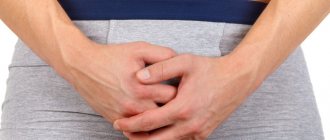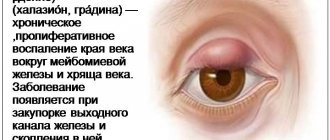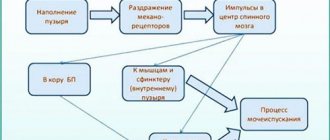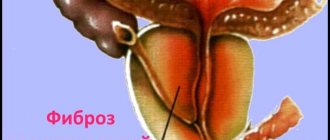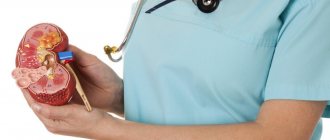Burning in the urethra with prostatitis
A burning sensation in the prostate and urethra with prostatitis indicates the infectious nature of this disease. Let's list the possible pathogens. They often become:
- Candida fungi;
- ureaplasma;
- Trichomonas;
- gonococci;
- staphylococci;
- streptococci;
- various intestinal bacteria
- herpes viruses.
Infection can enter the prostate in 4 ways.
- Horizontal. From the intestines through general lymph circulation. Up to 1000 different types of bacteria live in our intestines, weighing about 2 kg in total. In case of dysbacteriosis, they can penetrate into the prostate lymphogenously through the general lymph circulation system.
- Rising. The infection enters the body through the urethra, usually after sexual intercourse with a sick partner.
- Descending. Urination is the most important system for cleansing the body of toxins and pathogens. If its operation malfunctions, an infection develops due to bacteria contained in the urine.
A burning sensation in the prostate area can also be caused by various additional reasons. These include:
- low-quality synthetic underwear;
- wearing too tight models;
- injuries received, for example, during aggressive sexual intercourse;
- burns and frostbite;
- allergic reactions to food and medications;
- failure to comply with personal hygiene rules.
Note! If you have had chronic prostatitis without itching, and suddenly you feel discomfort, this often indicates additional infection, including STDs.
Medication course
If the burning sensation in the prostate is caused by an infection, the following remedies are used:
Drug treatment
- Immunomodulators. Their task is to improve immunity. In this way, the proliferation of pathogenic microorganisms slows down and the disease cannot progress to the chronic stage.
- Antibiotics. To treat infections of the genitourinary system, doctors prescribe cephalosporins, tetracyclines and macrolides. The patient must undergo an analysis to determine the sensitivity of the microorganism identified in him to medications.
- Hepatoprotectors. These drugs support liver functionality, which is especially important during antibiotic therapy.
- Anti-inflammatory drugs, including rectal non-steroidal ointments and suppositories.
- Antifungal drugs. They are effective for treating candidiasis.
- Drugs to improve blood circulation in the prostate gland.
- Vitamins and minerals. They have a strengthening effect on the body.
- Painkillers. They are necessary if the symptom appears as a result of the formation of stones. Antispasmodics and analgesics will help cope with pain.
- Alpha adrenergic blockers. These drugs are prescribed for adenoma and prostatitis.
- Microclysters. For this procedure, herbal decoctions are prepared that localize the symptom and relieve swelling.
- Preparations for the breakdown of stones. They are also prescribed for urolithiasis, depending on the type of calcifications.
There are three types of stones:
- cystine, which requires Tiapramine to remove;
- oxalates eliminated by Prolit,
- phosphates, against which Marelin is effective.
Rectal suppositories made from propolis will also help to cope with the symptom. They eliminate inflammation and burning sensation in the perineum. You can prepare candles yourself according to this recipe: mix 40 g of propolis with 200 ml of alcohol, then evaporate over fire until a viscous consistency is formed. Add 2 g of cocoa butter to the resulting mixture and make suppositories. To keep them in shape, they are frozen. A rectal suppository is administered before bedtime for a month. The course of treatment at the discretion of the doctor can be extended for another month.
Suppositories with propolis
You can also prepare an enema with Chamomile infusion. The decoction recipe is as follows: 15 g of dried flowers are poured into 1 liter of boiling water, then left for 40 minutes. An enema is made from a lukewarm solution. The same decoction can be taken instead of tea, as it has a diuretic effect.
These medications speed up recovery, but can only be used after being prescribed by a doctor.
Congestion in the pelvis is eliminated using physiotherapeutic methods. With their help, blood flow improves and the burning sensation is relieved. In addition to drug therapy, ultrasound treatment, prostate massage with a special stimulator, magnetic therapy, electrophoresis, and phototherapy are prescribed.
Discomfort (itching and burning) in the anus with prostatitis
Pain and burning in the prostate and anus are additional symptoms of the disease. Moreover, they often manifest themselves in different ways. Many patients note the presence of one or more (2-3) types of discomfort. Sometimes they may not appear at the same time.
A burning sensation in the anus with prostatitis can be caused by the development of a complication such as the appearance of calcifications and compactions in the prostate. Unbearable itching occurs when they irritate the nerve endings. A burning sensation in the rectum with prostatitis can also occur for reasons independent of the disease itself. Let's talk about them.
- Dysbacteriosis. It often occurs during infectious prostatitis when refusing to take vitamins and immunomodulators.
- Pediculosis pubis. Now it has become a rare occurrence, because many men prefer to shave the hair in the groin area.
- Parasites in the intestines. The presence of worms manifests itself as a burning sensation in the anus.
- Presence of anal fissures and hemorrhoids. They also cause discomfort during bowel movements and in everyday life.
- Allergic reactions to medications. Itching can be caused by suppositories and microenemas. If characteristic symptoms appear after taking it, you should consult your doctor and find a replacement.
Operative method
Surgery for prostatitis
In some situations, the patient is indicated for surgical intervention. The indication for surgery is the lack of effect of drug therapy and renal failure. It is also necessary in case of complications in the prostate, accompanied by constant pain. Surgery is used to remove tumors, prostate abscess with throbbing pain, and prostate stones. You should think about this method of treatment if there is a delay or absence of urination, blood clots in the urine and pus in the rectum.
If the cause of the burning sensation is prostatitis, the patient is prescribed surgery to completely remove the organ or cut out part of it (resection). Excision of the foreskin and cleaning of the pus that has accumulated due to inflammation of the organ is quite effective.
Prostate adenoma is removed by resection using an endoscope or using a laser. The first method can be used only if the adenoma is small. The technology evaporates adenoma tissue or grinds it.
Recommended topic:
Diagnosis of the prostate gland
If prostate cancer is detected, surgery is also prescribed by excision of the tumor. The malignant tumor is removed along with the prostate gland and surrounding lymph nodes.
Contraindications for surgical intervention are:
Age restrictions for surgery
- hypothyroidism;
- acute inflammation of the genitourinary system;
- respiratory infections; disorders of the cardiovascular and respiratory systems;
- age over 70 years;
- diabetes;
- bleeding disorders;
- use of blood thinners.
Preparing for surgery
Before the operation, the patient undergoes a comprehensive medical examination, including a fluorogram, electrocardiogram, examination by a therapist, anesthesiologist, and cardiologist. If necessary, the patient can be referred to a surgeon, gastroenterologist, or neurologist. Before the operation, a cleansing enema is given and hair below the navel is removed. sex.prostitutki72.com
Postoperative period
At the end of the surgical intervention, a catheter is installed in the patient’s bladder for continuous flushing of the organ. After resection of the prostate using an endoscope, the catheter is removed after 2–4 days. If the adenoma was eliminated - after 7-10 days. When a drainage tube was installed during the operation, the catheter is removed within 2–3 days, and the tube after 15–20 days.
Antibiotics
After surgery, blood is observed in the patient's urine. If blood stains persist for more than 3 weeks, you should consult a doctor. There may be a burning sensation when urinating. Typically, symptoms disappear within 6–8 weeks.
During the rehabilitation period, antibiotic therapy is prescribed, lasting 2–3 months, depending on the nature of the disease and the characteristics of tissue overgrowth.
During surgery, tissue samples are sent for microscopic examination, the results of which will be ready after 7-10 days. They provide a histological conclusion about the presence or absence of malignancy. Detection of cancer-causing cells is possible even with a negative biopsy.
Possible complications after surgery
Depending on the age and individual characteristics of the body, severe bleeding may occur after surgery, requiring a blood transfusion, and sometimes a repeat operation. When resection of the prostate there is a risk of damage to the bladder wall, open surgery is performed to eliminate this. An infectious disease may worsen, causing inflammation of the kidneys, prostate, and testicles. Also, in patients, the urethra narrows 1.5–2 months after surgery.
How to relieve burning and itching with prostatitis
To get rid of itching and burning in the prostate and anus, you need to see a specialist in the coming days and tell him about the problem. Only a professional doctor will be able to determine the cause of the symptoms and prescribe the necessary diagnostic procedures and adequate treatment. If the situation is such that you can only see a specialist after a certain period of time, use the following recommendations.
- First of all, determine the likelihood of itching and burning of the head with prostatitis due to allergic reactions. These, for example, can be caused by eating exotic foods, wearing new underwear made of low-quality synthetics, and changing personal hygiene products.
- If you have diabetes, itching may be associated with this disease. Diabetes mellitus is a very serious and dangerous disease that requires professional treatment. Normalization of sugar levels during treatment helps the itching disappear.
- Proper changes in eating habits will help get rid of burning sensation in the prostate gland. Eliminate foods that irritate the mucous membranes from your diet. You should avoid salty, smoked, spicy and very sweet foods.
- If the prostate burns after using a rectal suppository or microenema, rinse the rectum with warm water and find a replacement with a different active ingredient.
Burning sensation in the prostate area: how to treat
When visiting a doctor, patients often complain that the prostate is burning, the penis is itching, and they ask how to relieve the burning sensation due to prostatitis. This description characterizes the patient's condition well. If you notice it in yourself, it is recommended to immediately contact a specialist. Maximum results can be achieved through an integrated approach to solving the problem. The complex includes the following procedures:
- A course of microenemas with decoctions of medicinal herbs or antibiotic solutions. Enemas relieve pain, burning and itching, and are also part of the therapy. Microclysters eliminate pathogenic microorganisms and relieve inflammation of the prostate gland.
- Physiotherapy. This group of methods includes prostate massage, UHF therapy and other techniques that relieve inflammation and improve blood circulation.
- Taking antibiotics. If the burning sensation when urinating due to prostatitis is of an infectious nature, it can be eliminated by taking antibiotics. Fluoroquinolones and macrolides are most often prescribed.
- A course of non-steroidal anti-inflammatory drugs (NSAIDs). The NSAID group stops the inflammatory process, normalizes the outflow of urine and blood circulation in the prostate gland.
- Taking alpha-blockers. These are additional medications that are prescribed to reduce high blood pressure and normalize the tone of the smooth muscles of the gland.
- Dietary supplements and radon baths. This is an auxiliary measure that will enhance the result.
ORDER
If the burning sensation in the prostate gland is caused by non-infectious causes, a good result can be achieved by using rectal suppositories, gels and ointments. These products reduce burning and itching, as well as pain and inflammation.
If cancer is detected, external radiation and prostatectomy are prescribed. After performing these procedures, a course of corticosteroids must be prescribed.
If the symptom is a manifestation of urolithiasis or a guy/man complains of a burning sensation in the penis after removal of the prostate, antispasmodic drugs are prescribed to relieve acute pain. Additionally, in some cases, medications are prescribed to dissolve stones in the genitourinary system.
If all of the above methods of conservative treatment and physical therapy do not give the desired result, doctors prescribe surgical intervention. In acute cases of urolithiasis, this is often the only possible treatment. During the operation, the peritoneum is opened and the stone is removed. When calcification is diagnosed, the stones are crushed with a laser and removed through the urethra naturally.
Medicines for burning and itching with prostatitis
Symptoms of burning in the prostate, which occur when sitting and active activities, are relieved with antibiotics and anti-inflammatory drugs. Most often prescribed:
- Doxycycline;
- Acyclovir/Famciclovir - for herpetic lesions;
- Amoxiclav, Ciprofloxacin, Tavanic;
- Pimafucin/Clotrimazole - for fungal infections;
- Candles Vitaprost, Vitaprost Forte, Vitaprost Plus;
- Ichthyol candles;
Suppositories for the treatment of hemorrhoids and rectal fissures, for example Relief.
If the burning sensation in the prostate is caused by the appearance of calcifications, surgery may be required to remove the latter. In addition, various ointments and disinfectant solutions are used to relieve inflammation.
- Furacilin, Chlorhexidine and Miramistin. Used for disinfection.
- Levomekol. This ointment effectively fights bacteria.
Diagnostics
You need to seek help from a doctor
A burning sensation in the prostate can cause serious illnesses, and therefore, when the first symptoms appear, you should consult a doctor. The patient receives consultation from a proctologist, dermatovenerologist, and gastroenterologist. To establish the cause of a burning sensation in the prostate, it is necessary to conduct an accurate diagnosis of the man’s health. First of all, the patient is sent for a general and biochemical blood test. Sugar and hormone levels are also determined.
A urine test is necessary to determine a possible genitourinary tract infection. Using the uroflowmetry technique, urination parameters are studied. The man also undergoes a digital examination of the rectum. This procedure will help determine the size of the organ and its structure, the presence of tumors. To find out the exact cause of the burning sensation, it is necessary to exclude helminthiasis and dysbacteriosis, for which a stool test is taken.
Recommended topic:
Preparing for a PSA blood test
Instrumental methods include anoscopy, colonoscopy, ultrasound and prostate biopsy. They detect a tumor or other organ pathology and determine its size.
Relieving burning and itching with prostatitis using folk remedies
The methods listed below will help improve the situation temporarily. Folk remedies can be used before going to the doctor and during complex treatment of the disease.
- Microclysters with a decoction of chamomile. Reduce burning sensation in the prostate area.
- Baths with calendula and chamomile. They have a calming effect, help relieve inflammation and get rid of redness. It is recommended to sit in the baths for 15 minutes.
- Decoction of lingonberry leaves. Taken orally 2-3 times a day. Helps get rid of itching in the urethra.
- Cranberry juice. Has the same effect. Even defrosted berries are suitable for obtaining it. After preparing the juice, you can make compote from the remaining pulp. By adding juice to it, you will get healthy cranberry juice.
What is prostatitis
Prostatitis is a common pathology of the genitourinary system among the stronger sex. Every fourth man consults a doctor with characteristic symptoms.
There are several categories of prostatitis:
- acute bacterial – the causative agent is predominantly Escherichia coli, less often enterococci;
- bacterial chronic - occurs with remissions and relapses; in addition to E. coli, viruses, trichomonas, chlamydia, fungi, mycoplasmas can provoke the inflammatory process;
- chronic pain syndrome in the pelvic area - with this pathology, infections are not identified, the disease occurs with or without inflammation, among the provocateurs: low motor activity, rare sexual activity, overheating/hypothermia;
- asymptomatic – occurs without characteristic signs, is diagnosed accidentally (most often during an examination by a doctor).
Only a urologist can determine the type of disease. After a thorough diagnosis, a treatment regimen is developed, which is carried out under the supervision of the attending physician.
Is it possible to cure prostatitis? The answer is positive for cases when the pathology is at the initial stage of development. It is important to prevent the disease from becoming chronic. It is even better to take preventive measures in a timely manner to prevent the inflammatory process of the prostate gland.
Prevention of infectious and chronic prostatitis
Prevention of infectious prostatitis, which causes a feeling that the prostate is burning, has several directions.
- Use barrier methods of contraception (condoms) in the absence of a regular trusted partner.
- Monitor your gut and take probiotics as needed to restore the protective barrier between your gut and prostate.
- Prevent prostate infection through urine. The main sources of infection for urine are various infections of the human body: tonsillitis, otitis, sinusitis, dental caries, bronchitis, pneumonia, acute respiratory infections, etc. Treat the underlying diseases to strengthen the body's defense systems. Drink vitamins D, A and E, C, folic acid, fish oil.
- Eat up to 500 grams per day of a wide variety of fruits, vegetables, greens, nuts and seeds.
- take immunomodulatory drugs if necessary;
- If you suspect intestinal dysbiosis, take probiotics and consume high-quality lactic acid products.
- Minimize the amount of alcohol consumed and cigarettes smoked.
For chronic prostatitis, physiotherapy is very useful. The Smart-Prost device we developed is perfect for it. It has a complex effect on the genitourinary system. A combination of vibration prostate massage, heating, infrared therapy and magnetic therapy:
- reduces pain;
- reduces the number of leukocytes in prostate secretions;
- normalizes blood circulation in the gland;
- helps get rid of congestion;
- increases potency;
- normalizes urination;
- relieves burning of the head during prostatitis caused by inflammation;
- improves orgasmic sensations.
The effectiveness of using Smart-Prost for the prevention of chronic prostatitis and the fight against the disease has been confirmed by our clinical studies. Healing speed increases by 42%. When using the device according to a program developed by a doctor, exacerbations do not occur.
Symptoms of prostatitis
How do you know if you have prostatitis? It is necessary to pay attention to the slightest changes in the functioning of the genitourinary system. Among the common signs of pathology:
- frequent urge to urinate, urine output is difficult;
- a significant decrease in the daily amount of urine;
- pain during defecation, radiating to the groin;
- after bowel movement, discharge from the urethra is observed;
- burning in the perineum and urethra;
- spontaneous nocturnal erections;
- increased body temperature;
- weakening of erection;
- too rapid ejaculation during sexual intercourse;
- unemotional sensations during orgasm.
The disease is accompanied by pain of a different nature. Where does it hurt with prostatitis:
- in the scrotum area;
- in the perineum;
- at the base of the genital organ.
Reference! The acute form of the pathology is accompanied by frequent headaches.
Urination with prostatitis is intermittent and may be accompanied by painful sensations. The bladder does not empty completely. The stream is sluggish. The characteristic symptoms are often supplemented by decreased performance, lack of appetite, and rapid fatigue.
Reference! Blood with prostatitis contains a specific prostatic antigen. It is detected during a diagnostic study of biological material.
The symptoms of the acute form differ from the chronic disease. In the second case, there is an alternation of phases of remission with relapse.
Folk remedies for a burning sensation in the prostate
Traditional medicine can remove a burning sensation in the prostate. However, such prescriptions can only be used in combination with the main treatment, with the permission of the attending physician. We list some options used at home.
- Baths with chamomile and calendula. These medicinal plants soothe tissues and reduce inflammation of the affected areas. To prepare the infusion, crushed herbs are mixed and brewed with boiling water. The broth is allowed to cool, filtered and diluted with warm water. You need to take a bath for 15 minutes.
- Microenemas with chamomile. Chamomile can relieve itching in the anus. To do this, the herb is brewed with boiling water, infused and injected into the anus using an enema.
- Cranberry juice. Cranberry juice has diuretic and antimicrobial properties. Therefore, it can be used for prostate adenoma and other urological diseases. The juice is prepared from fresh and frozen berries. They are ground through a sieve, the cake is boiled, and the resulting fruit drink is drunk.
- Propolis candles. Suppositories from propolis extract can be prepared at home. Therapy is continued for a month. In this case, suppositories are inserted into the anus every evening, before bedtime. The product effectively fights pathogenic microorganisms, relieves pain, normalizes blood flow to tissues and prevents the formation of scars.
Important! All these medicinal components can be used only in the absence of allergic reactions and individual intolerance.
Preventive measures
To prevent burning in the prostate, you must adhere to preventive measures:
Proper nutrition and cleanliness
- Observe hygiene rules. It is recommended to wash the perineum after each bowel and bladder movement. Twice a day it is necessary to thoroughly wash the genital organ.
- Follow your diet.
- Undergo preventive examinations with a doctor and undergo periodic tests.
- Consult a doctor if a burning sensation occurs.
- Do exercises, play sports.
- Eliminate bad habits.
- Avoid casual sex.
- Regulate sexual activity.
- Use contraception during sex.
Part of prevention is diet. To eliminate the burning sensation in the prostate, you need to change your eating habits. Spices, alcohol, smoked meats, garlic, peppers, onions, fried and fatty foods, salt, canned food and marinades are excluded from the diet. It is necessary to limit the consumption of sweets and flour products.
When a burning sensation appears in the prostate, a man should eat steamed cutlets, meat and fish, cereals, boiled vegetables and dairy products.
The patient needs to maintain a drinking regime, drinking at least 2 liters of liquid. This will help get rid of the bacterial infection faster. The appearance of a burning sensation in the prostate is a signal for a medical examination of the patient. This symptom accompanies many diseases and pathologies of the prostate gland and can only be eliminated by treating the underlying disease.



